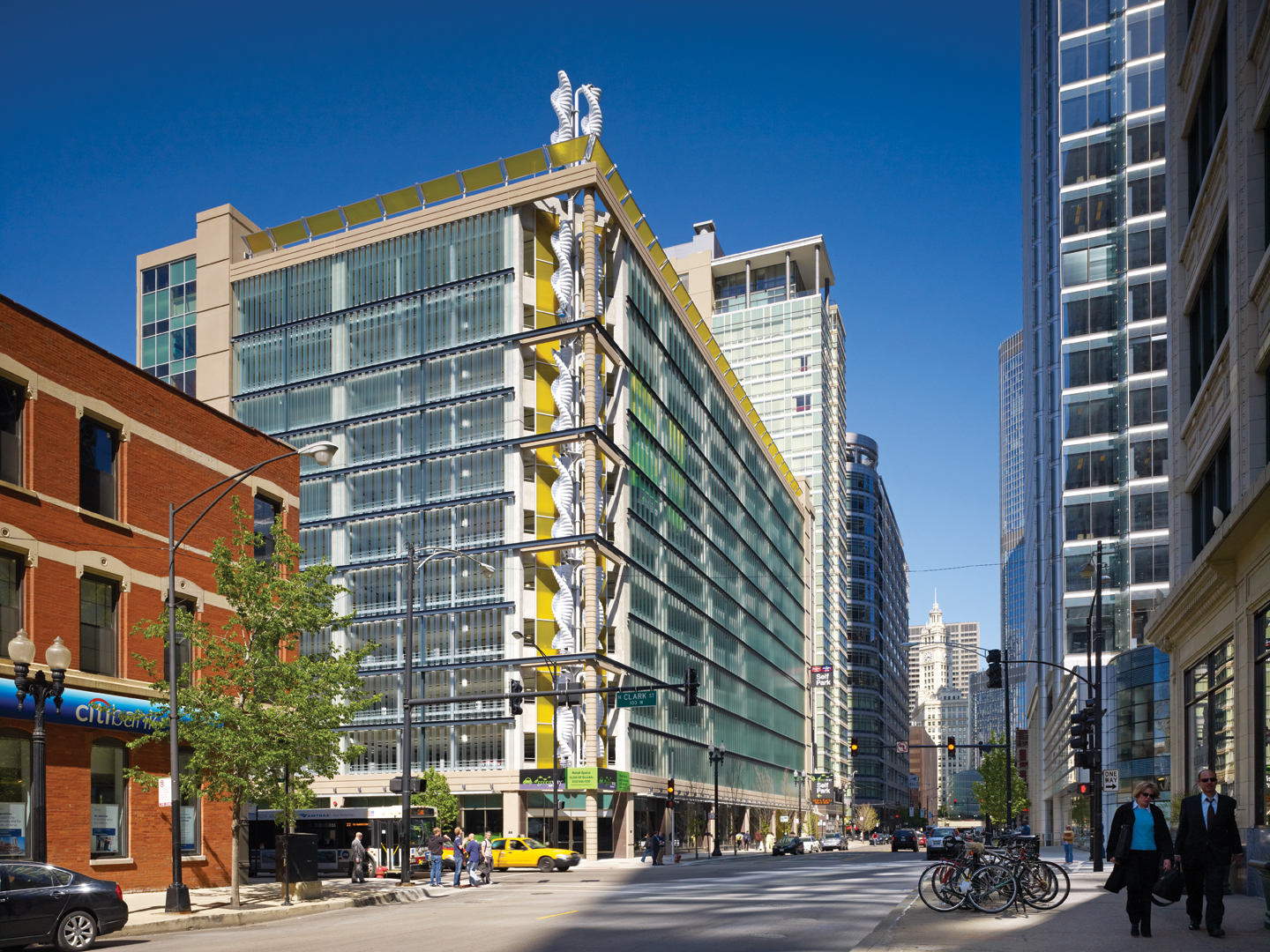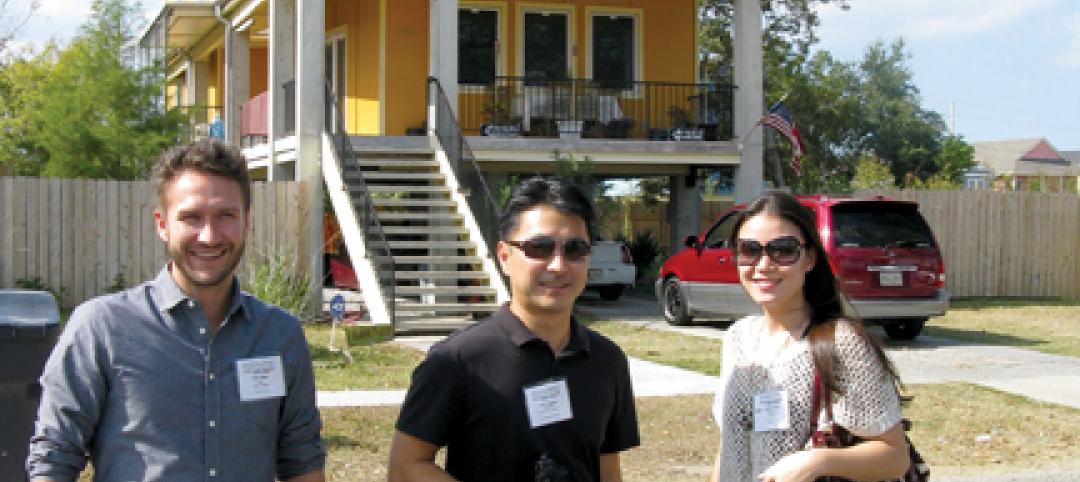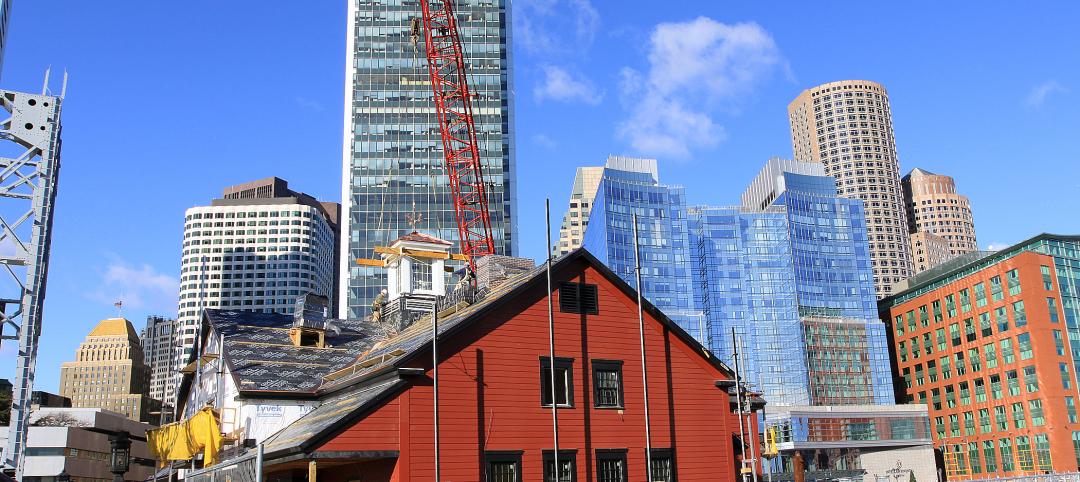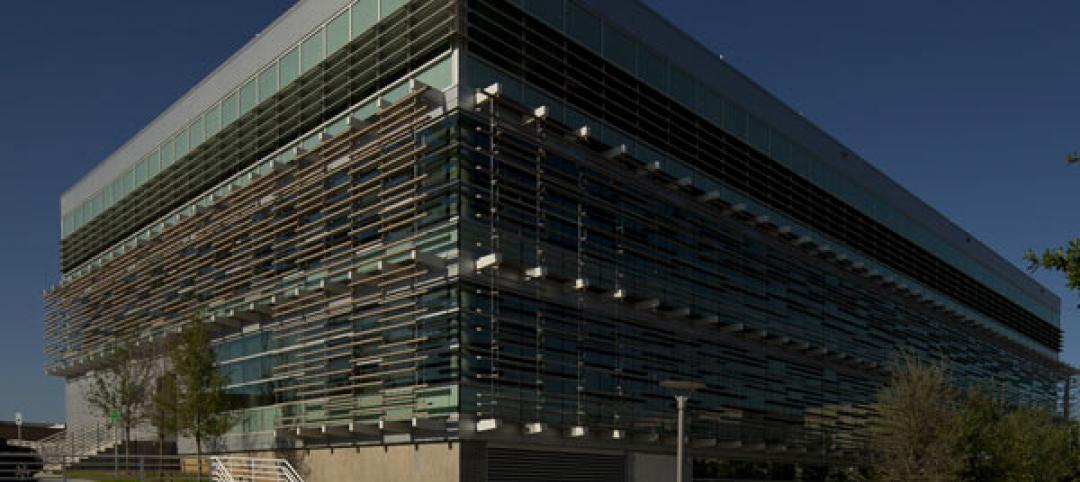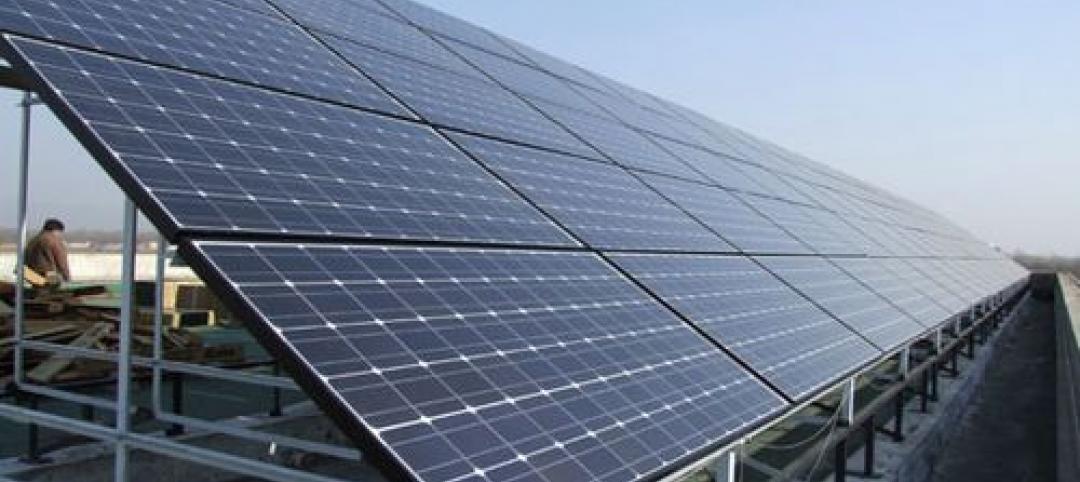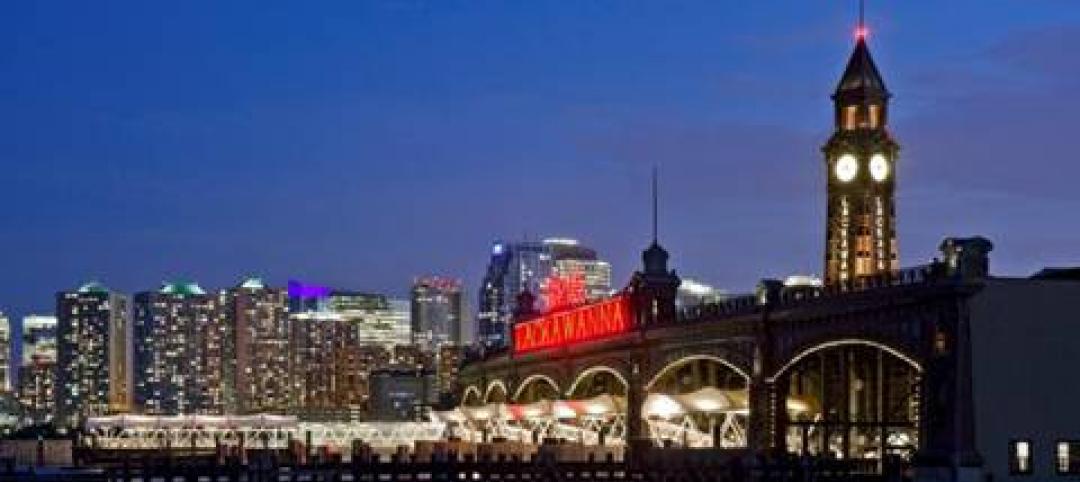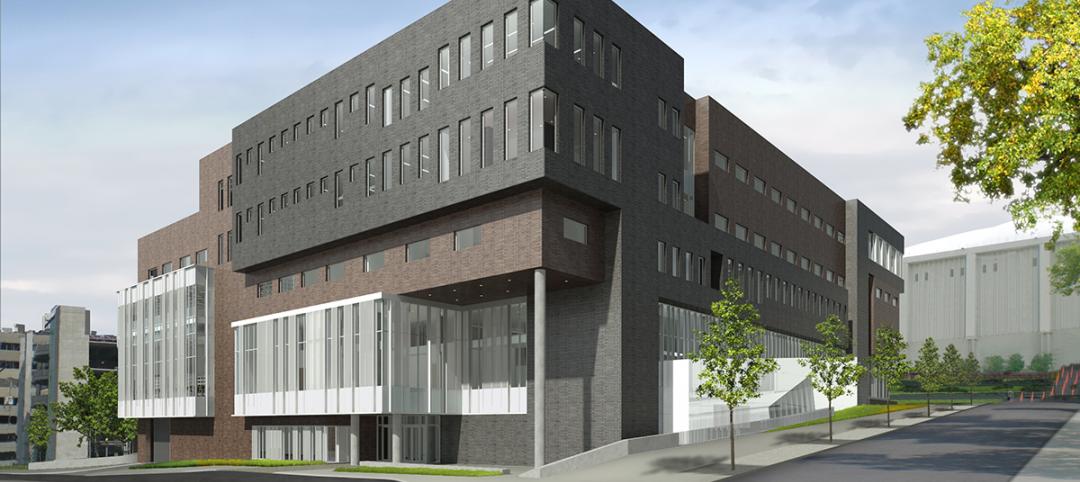The Greenway Self-Park in Chicago’s River North neighborhood shines like a beacon of enlightened green design on a block crowded with office and residential towers. The 285,000-sf parking structure’s green-tinted glass exterior doubles as a ventilation and daylighting system. Its signage gives parkers tips on how to live greener. River North developer Friedman Properties is planning a residential tower next door so that the parking garage’s green roof can serve as a garden for future condo owners.
What sets the 800-car parking structure apart, however, is its 12-paired array of wind turbines. The vertical axis turbines, manufactured by Helix Wind, Poway, Calif., are positioned on the southwest corner of the building near the relatively wide corridor of Clark Street, a busy thoroughfare. Todd Halamka, director of design at the Chicago office of HOK and lead designer on the project, calls the turbines “a kinetic and functional sculpture piece.”
Weather data from collection stations at O’Hare and Midway airports and weather buoys off of Chicago’s lakefront, coupled with wind tunnel tests taken from nearby buildings, were used to evaluate the amount of wind that could be harvested from the site. Estimates by the Building Team put the average wind at that corner at 10 mph at grade level over a year, which, according to the manufacturer, should be sufficient to generate electricity for the structure. The turbines, which extend from the second story to the very top of the structure on the southwest corner of the building, should generate enough power to light the building’s exterior and still send some energy back to the grid through the structure’s reversible electricity meter, Halamka said.
The first day I visited the site there was a strong breeze blowing in from the southwest and the long helical blades of the turbines, shaped from corrugated metal, appeared to be rotating quite actively. On another less windy day, however, they did not appear to be moving at all. Because the parking facility has only been open since September, not enough reliable data has been collected on how much power the turbines have generated.
The Building Team of designers HOK/Cubellis and general contractor Bovis Lend Lease took extra steps to green the parking structure. Greenway Self-Park’s signage gives garage users tips on living more sustainably. Each floor has a different nature theme, such as water, air, and earth conservation. The garage has electric-car charging stations and priority parking for hybrid gas/electric vehicles and for Zipcar and I-Go car-sharing vehicles. Its planned green roof has rainwater cisterns for water collection. Almost all of the building materials were locally sourced. Light sensors control the building’s interior lights and shut them off if enough daylight is coming through the translucent glass-walled exterior.
HOK says the building is registered with LEED and is currently in the commissioning process. “Rather than design a traditional closed garage which has an MEP system and has to run 24/7, working with the city of Chicago we were successful in creating a naturally ventilated garage,” Halamka said. Each floor maintains at least 20% open exterior wall area that provides natural ventilation. “We varied the openings (on the channel glassed walls) so that the glass panels have different spacing that creates a subtle visual tapestry, so that each façade takes advantage of the natural light and air,” he said.
As Chicago’s River North neighborhood continues to develop, Halamka says he believes a more sustainable urban strategy would be to build out the surrounding surface parking lots with ground-floor retail capped with office and residential space and then condense the parking into a more vertical arrangement that promotes local live-work opportunities. “Cars are an inevitable means of transportation,” said Halamka. “It is how we choose to live and use our vehicles in a more sustainable lifestyle that is important.”
For now, building-mounted wind harvesting like that at Greenway Self-Park is still in its infancy. HOK says both its Chicago office and building owner Friedman Properties are committed to monitoring exactly how much energy the wind turbines at the Greenway Self-Park are generating two years from now, when there will be enough data to gauge actual production. BD+C
Related Stories
| Dec 27, 2011
BD+C's Under 40 Leadership Summit update
The two-day Under 40 Leadership Summit continued with a Leadership Style interactive presentation; Great Solutions presentations from Under 40 attendees; the Owner’s Perspective panel discussion; and the Blue Ocean Strategy presentation.
| Dec 27, 2011
Suffolk Construction celebrates raising of Boston Tea Party Ships & Museum cupola
Topping off ceremony held on 238th Anniversary of Boston Tea Party.
| Dec 27, 2011
State of the data center 2011
Advances in technology, an increased reliance on the Internet and social media as well as an increased focus on energy management initiatives have had a significant impact on the data center world.
| Dec 27, 2011
USGBC’s Center for Green Schools releases Best of Green Schools 2011
Recipient schools and regions from across the nation - from K-12 to higher education - were recognized for a variety of sustainable, cost-cutting measures, including energy conservation, record numbers of LEED certified buildings and collaborative platforms and policies to green U.S. school infrastructure.
| Dec 21, 2011
DOE report details finance options for PV systems in schools
The report examines the two primary types of ownership models used to obtain PV installations for school administrators to use in selecting the best option for deploying solar technologies in their districts.
| Dec 21, 2011
AIA Chicago & AIA Chicago Foundation 2011 Dubin Family Young Architect Award announced
The Dubin Family Young Architect Award is bestowed annually and recognizes excellence in ability and exceptional contributions by a Chicago architect between the ages of 25 and 39.
| Dec 21, 2011
Few silver linings for construction in 2012
On the brighter side, nearly half of respondents (49.7%) said their firms were in at least “good” financial health, and four-fifths (80.2%) said their companies would at least hold steady in revenue in 2012.
| Dec 21, 2011
Hoboken Terminal restoration complete
Restoration of ferry slips, expanded service to benefit commuters.
| Dec 21, 2011
BBI key to Philly high-rise renovation
The 200,000 sf building was recently outfitted with a new HVAC system and a state-of-the-art window retrofitting system.
| Dec 20, 2011
Gluckman Mayner Architects releases design for Syracuse law building
The design reflects an organizational clarity and professional sophistication that anticipates the user experience of students, faculty, and visitors alike.


